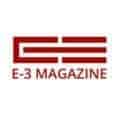Majuscule or minuscule


No! A distinction is made between text and logo; between editorial articles and image ads. With the text you want to inform and with a logo you want to visually attract attention. They are therefore two different functions. Therefore, in general, it is always important to pay attention to readability and to the reader when it comes to informative, even entertaining textual contributions. Every publisher and advertising agency should have design guidelines, so also for writing styles, unfortunately this is often not the case. The principle is to pay attention to a universally valid spelling.
It is no longer a trend that company or product names should begin with a lowercase letter (minuscule). However, this is called a stylistic element to make them stand out or stand out visually. It behaves the same way as color, font, style, etc. From there it is a design element and it is a logo, a so-called word picture. A logo does not presuppose that one should or even must adhere to it in a textual rendering.
Many agencies now use the hackneyed word "recognition" as a reason for this. But you don't achieve recognition by trying to make proper names as close as possible to the original in the text; on the contrary. We have learned to capitalize names, among other things, and unconsciously we expect to do so. We are also sensitized to this because of the valid orthography.
With lower case at the beginning of the sentence, one would also have a problem interpreting this correctly. Capitalization is also an important structuring element at the beginning of a sentence. Many international and/or long-established companies, such as Google, Amazon, Accenture, and Pepsi, specify capitalization for texts in their corporate design specifications.
A few words about acronyms. "SAP" or "Sap", "S/4HANA" or "S/4 Hana"? The spelling "SAP" results from the pronunciation, you say "Es A Pe", for S/4 Hana you pronounce the "Hana" and don't say "Ha A En A", this results in the spelling with majuscule and minuscule. Many customers also keep referring to SAP's website regarding the spelling of "Hana".
Just because it says so on the website doesn't mean that those responsible know the orthographic guidelines, it's not like turning on a computer means you know how to program either.
In publishing - whether print or web - one is actually obliged to give the best possible advice to the reader and the customer in order to present the optimum of textual contributions or even advertisements. Readability or even visually quick absorption are conducive to being read and noticed. In order to achieve this, it is therefore necessary to adhere to uniform and legible writing styles.
Now imagine if, in publishing, we were to cater to the ideas of everyone who wanted their article published. Every page would look different. What effect would that have on you? Doesn't it look unprofessional? Would you want to permanently purchase and also read this magazine? Would interested parties continue to advertise in such a magazine? Here, too, experience says: No! (mc)






